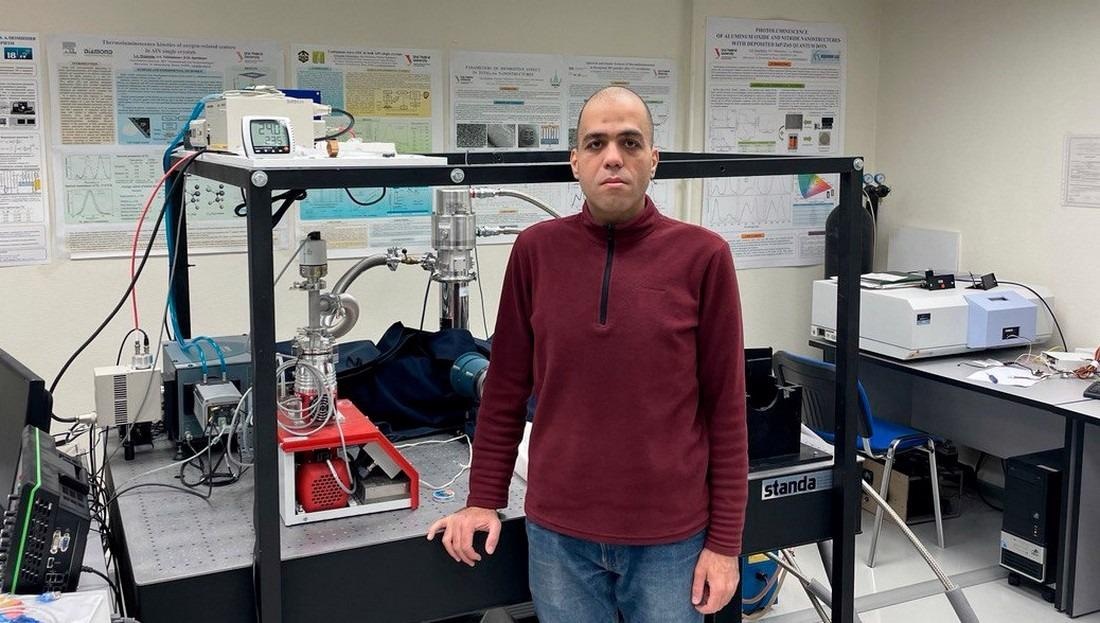Polymer films, the foundation for organic electronic components, have been enhanced by an international team of scientists. The novel material has the potential to improve the capacity of solar cells, lithium polymer batteries and the modernization of organic field-effect transistors. The study’s description and findings were published in the journal Optik.
 The new polymer material can also be used to produce protective screens used in medicine. Photo from the personal archive of Ahmed Hinaish. Image Credit: Ural Federal University.
The new polymer material can also be used to produce protective screens used in medicine. Photo from the personal archive of Ahmed Hinaish. Image Credit: Ural Federal University.
Microcircuits and other electrical devices are made with organic materials in organic electronics. In such electronics, polymeric materials are employed as semiconductors, replacing conventional electronic components made of silicon, copper, and other metals.
Polyvinyl alcohol (PVA) polymer films, in particular, are extremely dielectric and charge-accumulating. Lithium polymer batteries and capacitors, as well as organic light super-capacitors emitting diodes (OLEDs) and solar cells — all employ them.
However, in terms of energy storage efficiency, they are still inferior to standard silicon-based batteries. The researchers discovered that adding another polymer, polyethylene glycol (PEG), to the PVS film’s composition improved its energy efficiency.
The energy capacity of batteries directly depends on the dielectric permittivity of the polymer film. We analyzed how the dielectric properties of the PVS film change when PEG is added in different concentrations - 1, 3, 5, 10, 15, and 20 %. Impedance spectroscopy analysis showed that even at a one-percent concentration of PEG in the composition, the film's ability to accumulate electricity increases several times.
Ahmed Henaish, Senior Researcher, Nanomaterials and Nanotechnologies Research and Education Center, Ural Federal University
Henaish added, “Consequently, the use of a mixture of PVS and PEG will increase the electrical capacity of lithium polymer batteries used in cell phones, digital devices, and, in particular, hybrid electric cars.”
Other organic electrical elements can benefit from the enhanced polymer combination. Current losses in organic field effect transistors (OFET) are minimized, for example, due to their altered composition.
A feature of the field effect transistor is its low power consumption at fairly high currents. Now there is an increased interest in the application of OFET in new industrial devices. However, organic transistors still have several drawbacks, the elimination of which depends, among other things, on improving the properties of polymer materials.
Ahmed Henaish, Senior Researcher, Nanomaterials and Nanotechnologies Research and Education Center, Ural Federal University
The films were created by researchers from the Nanotech Research and Education Center, UrFU (Russia) and Tanta University (Egypt). The researchers intend to investigate the dielectric characteristics of thin polymeric nanocomposites comprised of PVS and aluminum in the future.
Journal Reference:
Alibwaini, Y. A., et al. (2022) Study of the PEG content effect on some properties of the PVA/PEG-EY films using the Raman, positron annihilation, and impedance spectroscopies. Optik. doi.org/10.1016/j.ijleo.2022.168591.